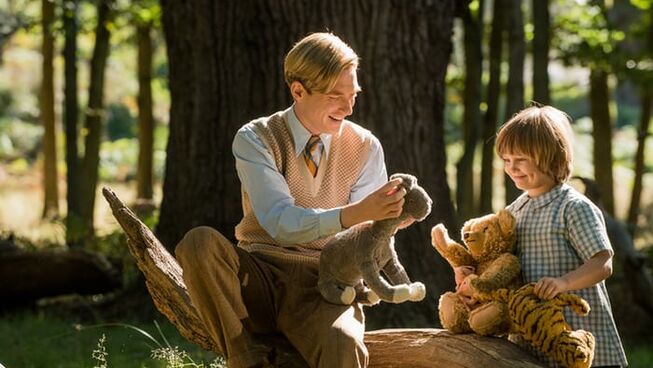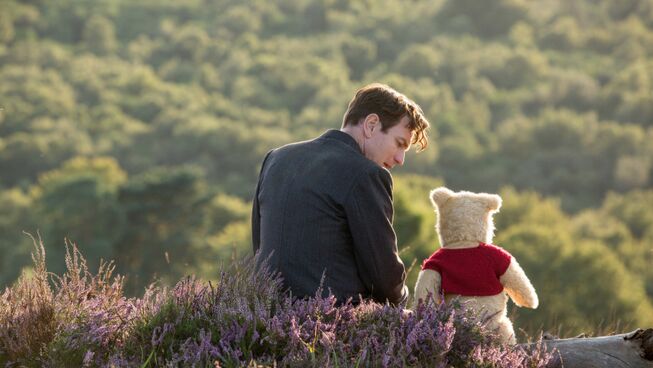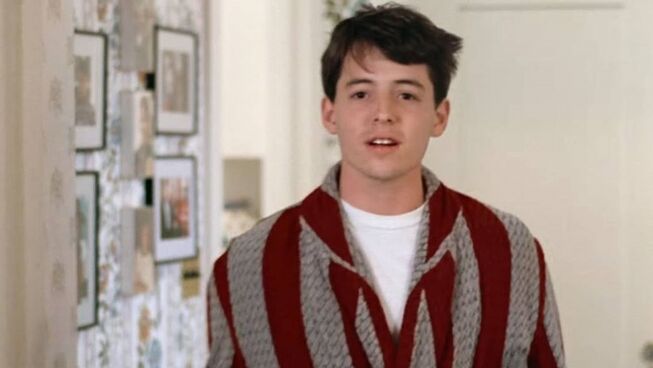
“How do you spell 'love'?" - Piglet
"You don't spell it...you feel it." - Pooh”
― A.A. Milne
2.5 out of 5 stars
Winnie-the-Pooh has been bringing children and adults joy and solace since his introduction in 1926. Since the two-volume set were written by A. A. Milne and illustrated by E.H. Shepard, the enthusiasm for the phenomenon of the bear at Pooh Corner has not diminished and remains one of the most recognisable brands in the world. Interestingly, the book and characters of the Hundred Acre Woods that have delivered so much happiness to people around the globe brought about pain and resentment for Milne and his son at the centre of the stories.
Alan “Blue” Milne (Domhnall Gleeson) was a successful playwright on the West End of London, but after serving on the front line during World War One, he came home a changed man and suffered from post-traumatic stress. He moved his family to the country to attempt to provide the writer with psychological well-being and to push him past a more traumatic situation, writer’s block. While caring for his son, Billy (Will Tilston, Alex Lawther) and taking him on long walks in the woods surrounding their home, Milne began to find solace in the imagination of his boy and gained inspiration from the adventures they had together with the younger Milne’s stuffed animals. These walks were the catalyst that broke the author free from his writer’s block and led to his creation of Winnie-the-Pooh and friends while using his son’s given names as the character of Christopher Robin. The initial success of the books began a journey in the Milne’s lives that started with euphoric highs but that lead to extreme lows for all involved.
This production does not bring about the warm and endearing emotions that usually come from Winnie-the Pooh, but draws more from the melancholy of the donkey known as Eeyore. For fans of the stuffed bear and Piglet, the hope is that the background would be a feel-good tale of the inspiration of the world-renowned children’s author and his family. Goodbye Christopher Robin draws more from the reality that sometimes the motivation to find comfort from the world’s ills comes with a price for all involved.
Similar to the story of the tragic life behind the charm of Marilyn Monroe in My Week with Marilyn, director Simon Curtis exposes the reality of the Milne’s lives. In studying the history of Alan and Daphne (Margot Robbie) Milne and their famous son, he reveals the weaknesses of parenting choices in that era and part of British culture. Also, the story shows that the desperate desire that children have for the love and acceptance of their parents. Gleeson is disturbingly convincing as the stoic patriarch of the family and Robbie is equality unsettling as the distant and fame-hungry mother. They manage to play to the actual characters described in the history books and Kelly MacDonald provides the winsome, but put-upon nanny of Christopher. Her relationship with the young boy does give a glimmer of hope in this moody biographical sketch.
Even with a hint of artistic license taken with the history, this is a troublesome, but fascinating look at the creation of a cultural icon. It is easy to see why these characters have prevailed throughout history, but knowing the darker impact this bear had on those closely associated with him does not add to the magic. It was worth going along the trail to see how Pooh came to be, but the comment that remains stuck in the brain upon leaving the cinema was merely, ‘Oh, bother.’
REEL DIALOGUE: Can joy really come out of tragedy?
Goodbye Christopher Robin shows the tragic tale that is behind the joyful character of Winnie-the Pooh. The experience of Billy Moon (Christopher Milne's family nickname) and the mental state of his father draw to light that many times great joy can come out of darkness.
This could be said of the heart of the good news of the story the life and death of Jesus. Winnie-the-Pooh may be famous, but the stuffed bear cannot begin to compare to the awareness that the world has of the central figure in the Bible.
Jesus' story is one of tragic beginnings and a horrific end, but throughout the journey of his short time on earth this tale of potential woe does offer hope to the world. His death is a symbol of joy everlasting for many and his life continues to provided overwhelm expectation of what is to be.
If you see you life as having little hope or joy, it may be a good time to check out the story of Jesus. Unlike Winnie the Pooh who stated, "I used to believe in forever, but forever's too good to be true.” Jesus offers people a hope in a forever that goes beyond your wildest dreams. The world Jesus opens to us goes beyond the imagination of A.A.Milne, Christopher Robin and his friends.






